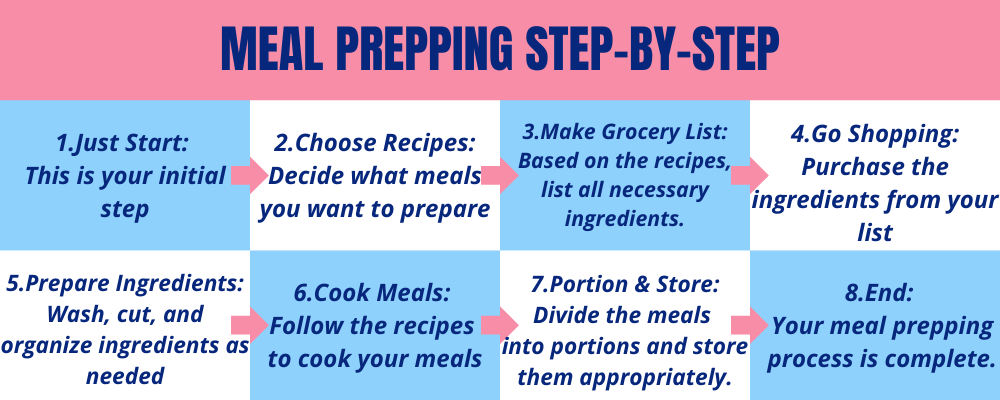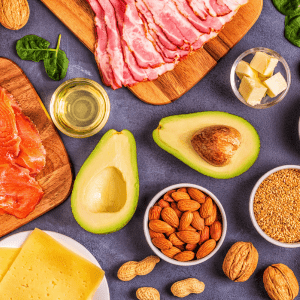The holistic diet represents more than just a nutritional plan; it’s a comprehensive approach to eating that considers the entire person—body, mind, and spirit. This concept emphasizes the importance of consuming whole, unprocessed foods, being mindful of eating habits, and understanding the profound impact of diet on one’s overall well-being. By integrating this diet into our lifestyles, we nourish our bodies with the essential nutrients they require and foster a deeper connection with our food, leading to improved health outcomes and a more balanced life. In the following sections, we’ll explore the fundamental principles of a holistic approach to dieting, its myriad benefits, and practical tips for seamlessly incorporating this approach into your daily routine.
We are here to offer our knowledge, but please do not interpret it as medical advice. If you have any questions, speak with your healthcare practitioner or get information from holistic nutrition professionals.
The Principles of The Holistic Diet
The foundation of a holistic diet is built on a set of guiding principles that prioritize overall well-being through nutrition. This approach to eating and living goes beyond mere calorie counting or nutrient tracking. Instead, holistic nutrition focuses on the quality and origins of foods, their nutritional benefits, and their effects on physical and emotional health. Here, we delve into the core principles that define holistic nutrition and how it forms the essence of a holistic diet.

– “Dive into the world of a holistic diet—where food nourishes more than just the body. It’s a path to harmony for mind, spirit, and nature. Read more to see how every bite can be a step towards a more balanced, vibrant life” –
Whole Foods
The emphasis on whole foods is central to this diet. This means choosing foods that are as close to their natural state as possible—think fresh fruits and vegetables, whole grains, nuts, seeds, and responsibly sourced meats and dairy. These foods are rich in crucial nutrients and devoid of artificial additives, preservatives, and processed ingredients that can detract from health.
Nutritional Variety
A diet like this promotes variety to ensure your body receives a complete spectrum of nutrients. Each color in fruits and vegetables offers different vitamins, minerals, and antioxidants. By diversifying your plate, you not only contribute to nutritional completeness but also enhance meal enjoyment, leading to a more balanced and nourishing way of eating.
Mindful Eating
Mindfulness is a key principle of holistic nutrition. It’s about being fully present during meals, savoring each bite, and listening to your body’s hunger and fullness cues. By appreciating the flavors, textures, and aromas of your food, you can have more satisfying eating experiences and prevent overeating, leading to a healthier relationship with food.
Balanced Portions
Is holistic nutrition emphasizing the importance of balance and moderation? Yes, understanding and honoring your body’s needs can help you determine the correct portion sizes that satisfy you without leading to excess. This balance is critical to maintaining energy, optimizing digestion, and supporting overall health.
Sustainability
Finally, holistic nutrition considers the environmental impact of food choices. It promotes the selection of locally sourced, organic, and ethically raised foods whenever possible. This principle reflects a respect for the planet and its resources, aiming to minimize one’s ecological footprint through mindful eating practices.
Adopting a holistic diet isn’t just about changing what you eat but transforming your relationship with food. It encourages a comprehensive approach to eating that nourishes every part of your being and supports a more mindful, balanced, and sustainable way of living.
The Benefits
Adopting this diet brings a multitude of benefits that extend beyond mere nutritional intake. This approach to eating, which emphasizes whole foods, mindfulness, and sustainability, profoundly affects physical, mental, and emotional well-being. Here, we explore the key benefits of integrating this diet into your lifestyle.

Enhanced Physical Health
The cornerstone of a holistic diet is its focus on whole, unprocessed foods rich in the nutrients necessary for maintaining and improving physical health. Consuming various fruits, vegetables, whole grains, and lean proteins may increase energy levels, improve digestion, and strengthen the immune system. This diet supports the body’s natural healing processes, promoting overall health and vitality.
Improved Mental Clarity and Focus
This diet also plays a crucial role in mental wellness. Nutrient-dense foods, particularly those high in omega-3 fatty acids, antioxidants, and vitamins, can enhance brain function, improving concentration, memory, and cognitive performance. By reducing processed foods and sugar intake, individuals may notice a decrease in mental fog and an increase in mental clarity.
Emotional Balance and Well-being
What we eat affects our physical health and emotional state. A diet like this encourages foods that stabilize mood and energy levels throughout the day. Mindful eating—paying attention to how food makes you feel—can foster a healthier relationship with food, reducing instances of emotional eating and promoting a more balanced emotional state.
Reduced Environmental Impact
Choosing to follow a holistic food plan benefits not just the individual but the planet as a whole. Opting for locally sourced, organic produce and ethically raised animal products reduces your carbon footprint and supports sustainable farming practices. This conscious choice helps promote biodiversity and reduces the use of harmful pesticides and fertilizers.
– “Embracing a holistic approach to dieting is an act of environmental care. Each mindful choice supports sustainability, reducing our footprint and nourishing the planet alongside ourselves.” –
Spiritual Connection and Mindfulness
Finally, this diet emphasizes the importance of the connection between food, the body, and the earth. It encourages individuals to practice gratitude for the nourishment provided by their meals, fostering a deeper spiritual connection to eating. This mindful approach to food consumption can enhance the overall dining experience, making each meal a moment of reflection and appreciation.
Implementing a Holistic Diet in Your Life
Embracing this diet may seem daunting initially, but incorporating it into your life can be a rewarding journey toward improved well-being. This approach to eating is not about strict rules or deprivation but rather about making mindful choices that benefit your health, the world around you, and your sense of harmony. Here are some practical tips to help you implement a holistic diet into your daily routine.
Start with Small Changes
Transitioning to a holistic approach doesn’t have to be an all-or-nothing approach. Begin by making small, manageable changes to your eating habits. This could be as simple as incorporating vegetables into every meal, swapping processed snacks for whole food options, or choosing water over sugary drinks. Gradual changes can lead to lasting habits.
Plan Your Meals
Meal planning is a critical component of this diet. By preparing your meals, you can ensure that you incorporate various nutrient-dense foods into your diet. Start by planning a few days at a time, gradually working up to planning for the week. This helps with grocery shopping and minimizes the temptation to opt for convenience foods.
We may collect a commission at no additional cost to you if you make a purchase through any of the affiliate links in this post.

Embrace Whole Foods
At the heart of this holistic approach is the focus on whole foods. Prioritize fruits, vegetables, whole grains, nuts, seeds, and lean proteins. These foods provide essential nutrients and fiber, crucial for maintaining health. Look for seasonal, fresh vegetables at your local farmers’ markets and create new recipes featuring these ingredients.
Practice Mindful Eating
Mindful eating is about being present and fully experiencing your food. Take the time to savor your meals’ flavors, textures, and aromas. Eating slowly and without distraction can help you better recognize your body’s hunger and fullness cues, preventing overeating and enhancing your relationship with food.
Educate Yourself
Understanding the principles behind this diet can empower you to make wise decisions about the foods you consume. Educate yourself on the nutritional value of different foods, the benefits of organic and sustainably sourced products, and the impact of your food choices on the environment. Knowledge is power when it comes to transforming your diet.
Listen to Your Body
Finally, remember that a holistic approach like this is deeply personal. What works for one person may only work for one person. Listen to your body and adjust your diet according to what makes you feel best. This might mean modifying certain aspects of the diet to suit your individual health needs and preferences better.
Implementing this diet is a step towards a more mindful, health-conscious lifestyle. It’s an opportunity to reconnect with your food, your body, and the natural world, leading to a more balanced and fulfilled existence.
FAQ | Frequently Asked Questions
What foods are allowed on a holistic diet?
Holistic nutrition primarily allows whole, unprocessed foods, including fruits, vegetables, whole grains, nuts, seeds, and lean proteins.
What is holistic health diet?
A holistic health diet emphasizes whole, unprocessed foods and considers the entire well-being of the individual, integrating physical, mental, and spiritual health.
How do I start eating holistic?
To start eating holistically, begin by incorporating more whole, unprocessed foods into your diet, focusing on fruits, vegetables, whole grains, nuts, and seeds, while also practicing mindful eating (read the paragraph about practising mindful eating above).
What is the holistic approach to dieting?
The holistic approach to dieting focuses on consuming whole, unprocessed foods and considers the overall well-being of the individual, integrating physical, mental, and spiritual aspects of health.
Conclusion
In conclusion, adopting a holistic approach to dieting is about much more than just the food on your plate; it’s about nourishing your body, mind, and spirit in unison. By choosing whole, unprocessed foods and practicing mindfulness, you can embark on a journey towards a more balanced, healthful life, deeply connected to your well-being and the environment.












3 thoughts on “The Holistic Diet | What is it? How Does It Work?”
Comments are closed.